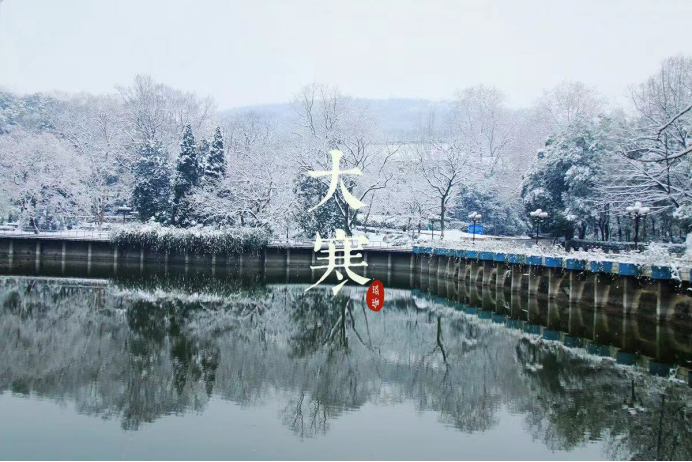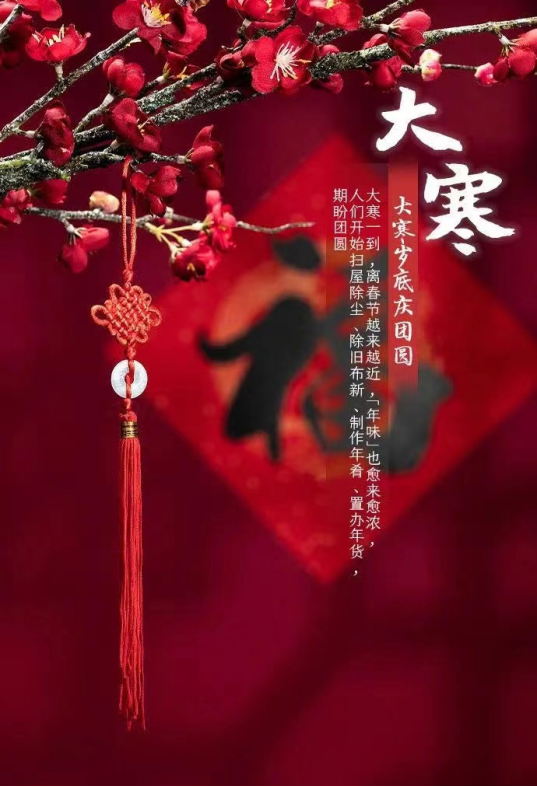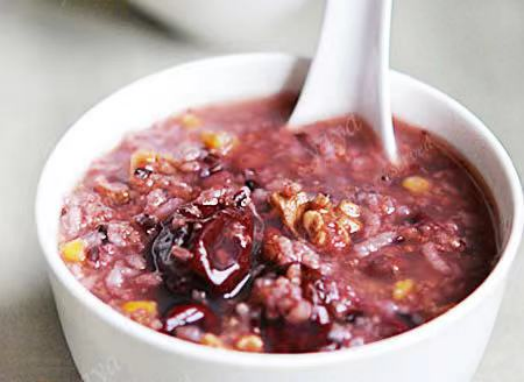大寒丨大寒雪未消 Great Cold
大寒,是二十四节气中的最后一个节气。大寒在岁终,冬去春来,大寒一过,又开始新的一个轮回。
Great Cold is the last solar term among the 24 solar terms. The Great cold at the end of the year, winter to spring, the Great cold once passed, and began a new cycle.

在中国一些地方,每到大寒至立春这段时间,有很多重要的民俗,如除旧布新、制作腊味以及祭灶、尾牙祭等。尾牙祭,亦称“做牙”、“做牙祭”等,民间有做完牙祭后全家坐一起“食尾牙”的习俗。流行的年尾“年会”是“尾牙祭”的遗俗。
In some parts of China, during the period from great Cold to the start of Spring, there are many important folk customs, such as removing the old and the new, making preserved food, and offering sacrifices to stoves and tail teeth. Tail tooth sacrifice, also known as "making teeth", "making teeth sacrifice", etc., there is a folk custom of the whole family sitting together after the tooth sacrifice "eating tail teeth". The popular annual meeting at the end of the New Year is a relic of the tail tooth Festival.
对北方大部地区来说,小寒的确冷于大寒。但对于南方一些地区来说,却是大寒节气时最冷;大寒节气一般从1月20-21日开始,公历1月下旬恰是南方一些地区全年中最冷的时段。
For most northern regions, minor cold is indeed colder than Great Cold. But for some areas in the south, it is the coldest time during the Great Cold. The Great Cold solar term usually starts from January 20-21. The late January of the Gregorian calendar is the coldest time of the year in some parts of the south.
这节气期间,人们开始忙着除旧饰新,腌制腊味年肴,准备年货,因为中国人最重要的节日——春节就要到了。这节气期间,人们开始忙着除旧饰新,腌制腊味年肴,准备年货,因为中国人最重要的节日——春节就要到了。
During this solar term, people start to get rid of the old and decorate the new, preserve preserved dishes and prepare New Year's goods, as the Spring Festival, the most important festival for the Chinese people,is coming. During this solar term, people start to get rid of the old and decorate the new, preserve preserved dishes and prepare New Year's goods, as the Spring Festival, the most important festival for the Chinese people, is coming.

腊八节是流行于中国北方地区的重要节日,这节日习俗是吃腊八粥。腊八粥,又称“七宝五味粥”、“佛粥”、“大家饭”等,是一种由多样食材熬制而成的粥。宋 吴自牧撰《梦粱录》卷六载:“八日,寺院谓之‘腊八’。大刹寺等俱设五味粥,名曰‘腊八粥’。腊八这天喝腊八粥这一习俗的来历和佛陀成佛有关,清代苏州文人李福诗云:“腊月八日粥,传自梵王国,七宝美调和,五味香糁入。在中国北方,有 “小孩小孩你别馋,过了腊八就是年”之说,过腊八意味着拉开了过年的序幕。
Laba Festival is an important festival popular in northern China. It is customary to eat Laba porridge. Laba porridge, also known as "seven treasures and five flavors porridge", "Buddha porridge" and "Everyone's meal", is a porridge made from a variety of ingredients. Song Wu Zimu wrote "Dream Liang Lu" volume six years: "Eight days, the temple called 'Laba'. Big temple and so on all set five flavor porridge, known as' Laba porridge '. Laba this day to drink Laba porridge the origin of this custom and Buddha Buddha related, Qing Dynasty Suzhou literati Li Fu Shiyun: "Laba porridge, passed from the Brahma kingdom, seven treasure beauty reconciliation, five flavor sweet grits into. In northern China, there is a saying that "children don't be greedy, after Laba is the New Year", which means the beginning of the New Year.
